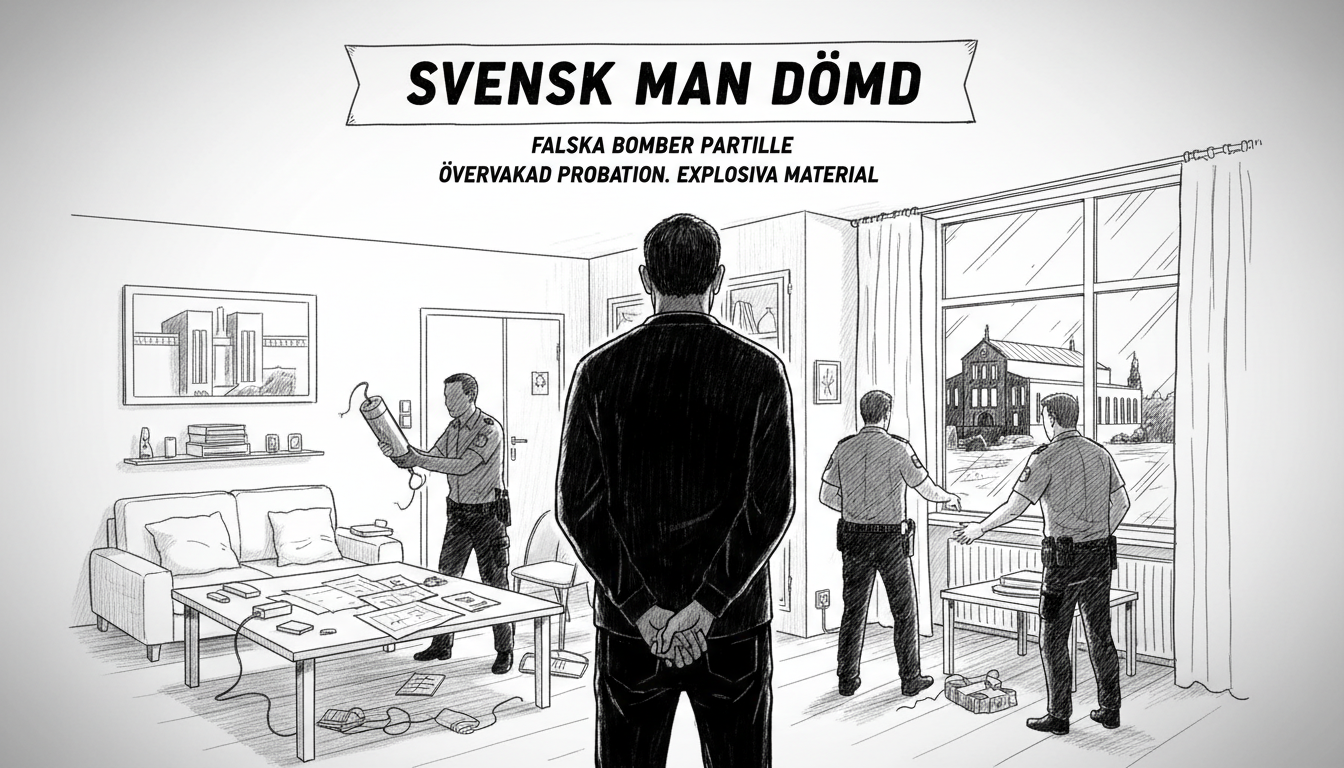A Swedish court has convicted a man for placing fake explosive devices throughout Partille municipality. Police discovered substantial quantities of explosive materials during a raid on his residence. The 37-year-old defendant claimed his actions were legal during questioning. He expressed his passion for pyrotechnics and described it as an adrenaline-filled experience. The district court disagreed with his assessment and sentenced him to supervised probation.
This case highlights Sweden's strict approach to public safety threats. Authorities treat potential bomb threats with extreme seriousness regardless of whether devices are real or fake. The discovery of actual explosive materials during the investigation escalated the situation beyond simple public disturbance charges.
Sweden maintains rigorous regulations governing explosive materials and pyrotechnics. Private citizens face significant restrictions on possessing such substances without proper licensing. The legal system distinguishes between professional pyrotechnics use for events and private stockpiling of dangerous materials.
What consequences might this conviction bring? The supervised probation sentence suggests the court considered this a moderate offense. Yet the presence of actual explosives could have led to more severe terrorism-related charges. Swedish courts typically weigh both the actual danger and the public fear such actions generate.
Similar cases have occurred throughout Scandinavia in recent years. Nordic countries generally adopt low tolerance for anything resembling bomb threats. Denmark prosecuted several individuals for fake bombs at transportation hubs last year. Norway strengthened its explosive materials regulations following a 2011 terrorist attack.
International residents should note Nordic countries treat public safety violations seriously. What might seem like a prank in other jurisdictions could result in criminal charges here. The cultural expectation emphasizes collective security over individual amusement.
The case raises questions about how societies balance hobby interests with public safety concerns. Genuine pyrotechnics enthusiasts typically pursue licensed, controlled environments for their activities. Private stockpiling of explosive materials crosses into different legal territory entirely.
Local residents expressed relief following the sentencing. Partille municipality, located near Gothenburg, maintains generally low crime statistics. Incidents involving explosives remain rare in this suburban community. The case has prompted discussions about improving reporting mechanisms for suspicious activities.
Swedish law enforcement continues investigating how the individual acquired the materials. The case may lead to additional charges or reveal broader supply networks. Authorities typically pursue all connections in weapons and explosives cases.
This sentencing serves as a clear reminder about Nordic legal boundaries. The region's emphasis on societal security often surprises newcomers from more permissive jurisdictions. The case demonstrates that Swedish courts take potential threats seriously regardless of claimed intentions.

